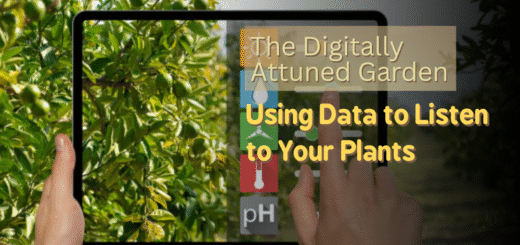The Never-Ending Education of a Gardener
Let’s be honest: nobody ever truly masters gardening. The moment you think you’ve got it all figured out, a new pest arrives, a strange fungus appears on your heirlooms, or you read about a cultivation method that turns everything you thought you knew on its head. That’s not a frustration; it’s the joy of it. Gardening is a living, breathing hobby, and staying curious is the single most important tool in your shed.
Think of it like this: clinging to what you learned a decade ago is like trying to navigate a new city with a faded, torn map. You might eventually get there, but you’ll miss all the best shortcuts and new attractions. Embracing new ideas keeps the process fresh and exciting—it’s the difference between simply growing plants and truly understanding your little ecosystem.
A World of Wisdom at Your Fingertips
Gone are the days of waiting for a monthly magazine to find answers. Now, if your tomato leaves are curling at 10 a.m., you can be watching a university horticulturist explain the cause on YouTube by 10:05. The digital age is a game-changer for green thumbs.
- Deep Dives & Digital Classrooms: Platforms like Coursera or Master Gardener programs offer structured courses that can turn a casual interest into expert-level knowledge. It’s like auditing a college class in your pajamas.
- The Unbeatable Book: For all the digital wonders, there’s still no substitute for a well-written gardening book. The dog-eared pages, the notes scribbled in the margins—it becomes a personal journal of your growth as much as a source of information.
- Your Local Lifeline: Never underestimate the power of your state’s Extension service. These folks are plugged into the specific challenges and opportunities of your region. Their fact sheets and hotlines are a secret weapon for local gardeners.
Learning Side-by-Side
While online resources are incredible, some lessons are best learned shoulder-to-shoulder with other plant people.
- Conferences & Garden Tours: Attending a local horticultural society event or a botanical garden seminar does more than just teach you about pruning techniques. It connects you with a community. The conversations you have over coffee with a fellow rose enthusiast can be more illuminating than any lecture.
- Hands-On Workshops: Many community colleges and nurseries offer single-day workshops on everything from composting to grafting. There’s no replacement for getting your hands dirty under the guidance of someone who’s been doing it for years.
- The Digital Watering Hole: Gardening forums and niche social media groups are the modern-day equivalent of chatting over the backyard fence. You can share triumphs, diagnose problems with photos, and get real-time advice from a global community of enthusiasts.
Weaving It All Together
The most successful gardeners I know are intellectual magpies. They collect shiny bits of knowledge from everywhere: a tip from an old-timer at the garden center, a research paper from a university, a hack they saw on Instagram, and the hard-won lessons from their own failed experiments. They use apps to track first frosts and journal about what varieties performed best. This blend of ancient wisdom and modern technology creates a rich, personal tapestry of knowledge.
Conclusion: The Garden Is Your Greatest Teacher
In the end, the most important resource is your own plot of earth. You can read a hundred books on soil science, but kneeling down and feeling the texture of your own soil between your fingers teaches you something no book ever could. This journey of learning isn’t a chore to check off; it’s the very heart of the practice. It’s a continuous, rewarding dialogue between you and the natural world. Each new skill you learn, each problem you solve, and each connection you make deepens your relationship with the land. Keep listening, keep asking questions, and your garden will repay you with a lifetime of lessons.


